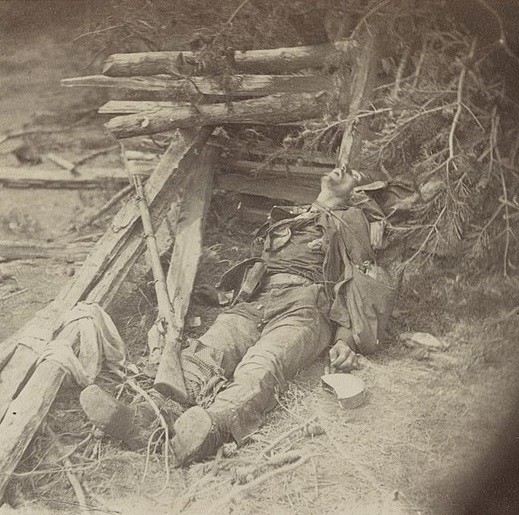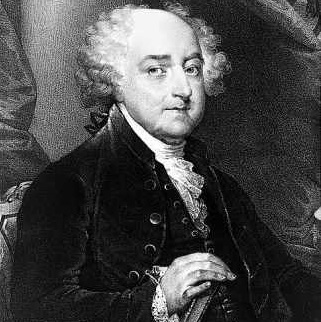
by Richard Subber | Jul 6, 2023 | Book reviews, Books, Joys of reading
find your groove…
Book review:
The Element:
How Finding Your Passion Changes Everything
by Ken Robinson, with Lou Aronica
New York: Viking, Penguin Group, 2009
274 pages
The theme of The Element is an exciting concept to think about.
I love his telling of this story: the six-year-old girl is hunched over her drawing, and she tells her teacher that she’s “drawing a picture of God,” and the teacher says “nobody knows what God looks like,” and the girl replies: “They will in a minute.”
Robinson tackles his inspirational advice: find your own distinctive talents and passions, and, when you recognize them, you’ll know you’re in the Zone, and you’ll love it.
Here’s what hinders us from finding our own Elements: we don’t fully understand the range of our capacities, how these salient capacities relate to each other, and how much potential we have to get better at stuff that makes us feel really good. (p. 9)
“The Element is the meeting point between natural aptitude and personal passion.” (p. 21)
“The highest form of intelligence is thinking creatively.” (p. 56)
“You can think of creativity as applied imagination.” (p. 67)
I think the first few chapters of The Element are enough to open your eyes and your mind to the wonderful challenge of tracking down and embracing your personal Element, if you haven’t done it already.
The rest of the book suggests that Robinson’s Element does not cover the talent for ending a book after you’ve said all that needs to be said. He wanders, and you might get bored.
* * * * * *
Book review. Copyright © Richard Carl Subber 2023 All rights reserved.
The “dime novels” in the Civil War
Think “blood-and-thunder”…
–
In other words: Poems for your eyes and ears with 64 free verse and haiku poems,
and the rest of my poetry books are for sale on Amazon (paperback and Kindle)
and free in Kindle Unlimited, search Amazon for “Richard Carl Subber”
* * * * * *

by Richard Subber | Jun 27, 2023 | Book reviews, Books, Human Nature, Joys of reading, Language
…death is an anticlimax…
Book review:
Les Liaisons Dangereuses
by Pierre-Ambroise Choderlos de Laclos
Originally published 1782
Translated as Dangerous Liaisons by Ernest Dowson, New York: Doubleday, 1998
Illustrations by Sylvain Sauvage
Les Liaisons Dangereuses is not a garden of delight.
This is a book about love, but the reader will find precious little of it in these pages.
An acquaintance dismissed this voluptuous tale, thus: “All they do is talk.”
Let’s begin there. The language is rich. I daresay that Laclos turns language into an erogenous zone in Les Liaisons Dangereuses.
If you aspire to a working understanding of good and evil, you could do worse than listen to the riveting chatter of the leading personae, who choose each word with careful, deliciously ribald, austerely cruel, and domineering intent. You really don’t want to be a friend, and you most assuredly don’t want to be an enemy.
Men, en garde! The Marquise de Merteuil impulsively thinks of cojones as table ornaments.
Ladies, away! The Vicomte de Valmont is a pirate lover, he sees women as prize ships ready for boarding.
One might wish to believe that the others are innocents: Cécile Volanges, Danceny, the Présidente de Tourvel. But, hold. Each of them seeks to play the game of love, but they are hardly able to distinguish winning from losing.
Yes, this is a boundless exposé of the worst elements—of human intrigue, self indulgence, hubris, vaunting egos, and careless poaching of souls—that masquerade as amour.
Yes, in a sense, the characters are stereotypes, but each is, remarkably, ingeniously, ingenuously, a masterpiece of the type. Laclos uses every pertinent word to make them real.
Yes, Les Liaisons is an ultimately degraded experience for both the characters and readers…ultimately, the reader must condemn the Marquise and the Vicomte for so many lives destroyed…death is an anticlimax in Liaisons Dangereuses.
The Marquise and the Vicomte are burdened with a moral framework that shuns the absolute—they have unimaginably unsatisfied desires, and no intellectual elaboration of right and wrong.
Yet, a gentle reader may offer these two a bare shred of pity.
The Marquise de Merteuil and the Vicomte de Valmont swirl through their lives, casually jousting with each other as they amuse themselves in controlling the fates of other men and women, but remaining unaware that they are not in control of their own fates.
Note for bibliophiles: Whether you read this in the original French, or in the lush translation by Ernest Dowson, accept the pain of experiencing a literary style that is no longer in vogue, prepare yourself for Laclos’ fabulous late 18th century style that discards a simple declarative sentence, readily, with apparent joy, whenever a sentence heavily laden with clauses, phrases, and modifiers will do just as well, heedless of the effect on a reader, whose inclination may be to appreciate the writhing drama of this story, with somewhat fewer words.
* * * * * *
Book review. Copyright © Richard Carl Subber 2023 All rights reserved.
Book review: The Snow Goose
…sensual drama, eminently poetic…
by Paul Gallico
–
Above all: Poems of dawn and more with 73 free verse poems,
and the rest of my poetry books are for sale on Amazon (paperback and Kindle)
and free in Kindle Unlimited, search Amazon for “Richard Carl Subber”
* * * * * *

by Richard Subber | Jun 13, 2023 | American history, Books, History, Politics, Power and inequality
the men in gray went AWOL
Book review:
Bitterly Divided: The South’s Inner Civil War
by David Williams
New York: The New Press, 2008
310 pages
Wow! Bitterly Divided is a game-changing perspective on the causes and conduct of the American Civil War.
Read this compellingly researched book by David Williams to get the details.
Some highlights:
About a half million black and white Southerners served in the Union army, about 25% of the total number of men in arms wearing blue uniforms.
There was substantial opposition to secession in every state that seceded. Politicians and rich slaveholders literally corrupted the elections to make secession happen.
In the latter years of the war, at any given time as many as two-thirds of the common soldiers in the Confederate army were absent with or without leave. General Lee worried persistently about deserters.
The Confederate armed forces always had enough ammunition, but the soldiers and their wives and families at home never had enough food—because rich plantation owners insisted on planting the more profitable tobacco and cotton crops.
The Civil War was fought about slavery—because the big slaveholders refused to give up their source of free labor.
* * * * * *
Book review. Copyright © Richard Carl Subber 2023 All rights reserved.
Book review: “Bartleby, the Scrivener”
Here is loneliness beyond understanding…
by Herman Melville
–
Seeing far: Selected poems with 47 free verse and haiku poems,
and the rest of my poetry books are for sale on Amazon (paperback and Kindle)
and free in Kindle Unlimited, search Amazon for “Richard Carl Subber”
* * * * * *

by Richard Subber | Jun 8, 2023 | American history, Book reviews, Books, History
“Last call! Stage leaves in 10 minutes!”
Book review:
Stage Coach and Tavern Days
by Alice Morse Earle
New York: The Macmillan Company, 1900
Reissued by Singing Tree Press, Detroit, MI
449 pages
Old-fashioned, folksy prose. Stage Coach and Tavern Days is just dripping with details for the sincere history buff or historian.
Just in case you forgot, taking a ride in a stagecoach was a noisy, dusty, bone-thumping experience…and there was no onboard bathroom.
If you have a secret love affair with stage coaches, and taverns, and spirituous beverages in the 18th century, dive in.
* * * * * *
Book review. Copyright © Richard Carl Subber 2023 All rights reserved.
Book review: The Sea Runners
…it informs, it does not soar…
by Ivan Doig
–
Seeing far: Selected poems with 47 free verse and haiku poems,
and the rest of my poetry books are for sale on Amazon (paperback and Kindle)
and free in Kindle Unlimited, search Amazon for “Richard Carl Subber”
* * * * * *
by Richard Subber | May 28, 2023 | American history, Book reviews, Books, History, Human Nature
self-serving lies, and dreams…
Book review:
The Self-Made Man in America:
The Myth of Rags to Riches
by Irvin G. Wyllie (1920-1974)
New York, The Free Press, 1954
210 pages
The Self-Made Man in America is a historian’s delight.
Wyllie offers the multiple meanings of “the self-made man” throughout American history, connecting historical elements of the American dream and the self-serving promotion of the concept by titans of industry and their bankers.
There is a panoply of quotations from key decision-makers throughout the decades that aid the reader in understanding how Americans at all ranks in the socioeconomic spectrum advocated, criticized, and embodied the siren song of “the self-made man.”
To be sure, Wyllie plainly states his verdict: “Throughout all our history the self-made man was the exception not the rule…success has been for the few, not the many….Men who occupy the lowest places in our society have known the facts for a long time…but…men on the bottom need dreams.” (p. 174)
* * * * * *
Book review. Copyright © Richard Carl Subber 2023 All rights reserved.
Book review:
Moral Tribes by Joshua Greene
he’s sincere, but off the mark…
–
In other words: Poems for your eyes and ears with 64 free verse and haiku poems,
and the rest of my poetry books are for sale on Amazon (paperback and Kindle)
and free in Kindle Unlimited, search Amazon for “Richard Carl Subber”
* * * * * *

by Richard Subber | May 14, 2023 | American history, Book reviews, Books, History, Joys of reading, Revolutionary War
…John Adams,
in the thick of it…
Book review:
John Adams
by David McCullough (1933-2022)
Simon & Schuster, New York, 2001
751 pages
Maybe you’re like me. Maybe you don’t think biography is the best way to do history. David McCullough’s Pulitzer Prize-winner is a reason to change your mind a bit.
John Adams, simply, is a really good book. McCullough helps you to warm up to this American icon and to his personal experience in leading the American Revolution and the first formative years of the American republic.
Adams, our first vice president and second president, was among the few who were in the thick of it from the beginning, and he never shrank from doing what he expansively viewed as his duty to his new country.
McCullough’s prose is a delightful experience for the serious historian and for the armchair dabbler who likes a good read. From cover to cover, John Adams is a lush, genuine presentation of a man, his loved ones, his career, his commitment to do good works and his never-flagging appreciation that the object of government should be to do the people’s business and make possible a decent life for all.
Adams, of course, couldn’t stop himself from being a politician, and he wasn’t the nicest kind.
The Alien and Sedition Acts were among the lowest points of American politics.
* * * * * *
Book review. Copyright © Richard Carl Subber 2023 All rights reserved.
Book review: Who Built America?
…including people
who got their hands dirty
by Christopher Clark and Nancy Hewitt
–
Above all: Poems of dawn and more with 73 free verse poems,
and the rest of my poetry books are for sale on Amazon (paperback and Kindle)
and free in Kindle Unlimited, search Amazon for “Richard Carl Subber”
* * * * * *




